Civilization
Philip Howard Aims To Enhance Freedom by Restoring Authority
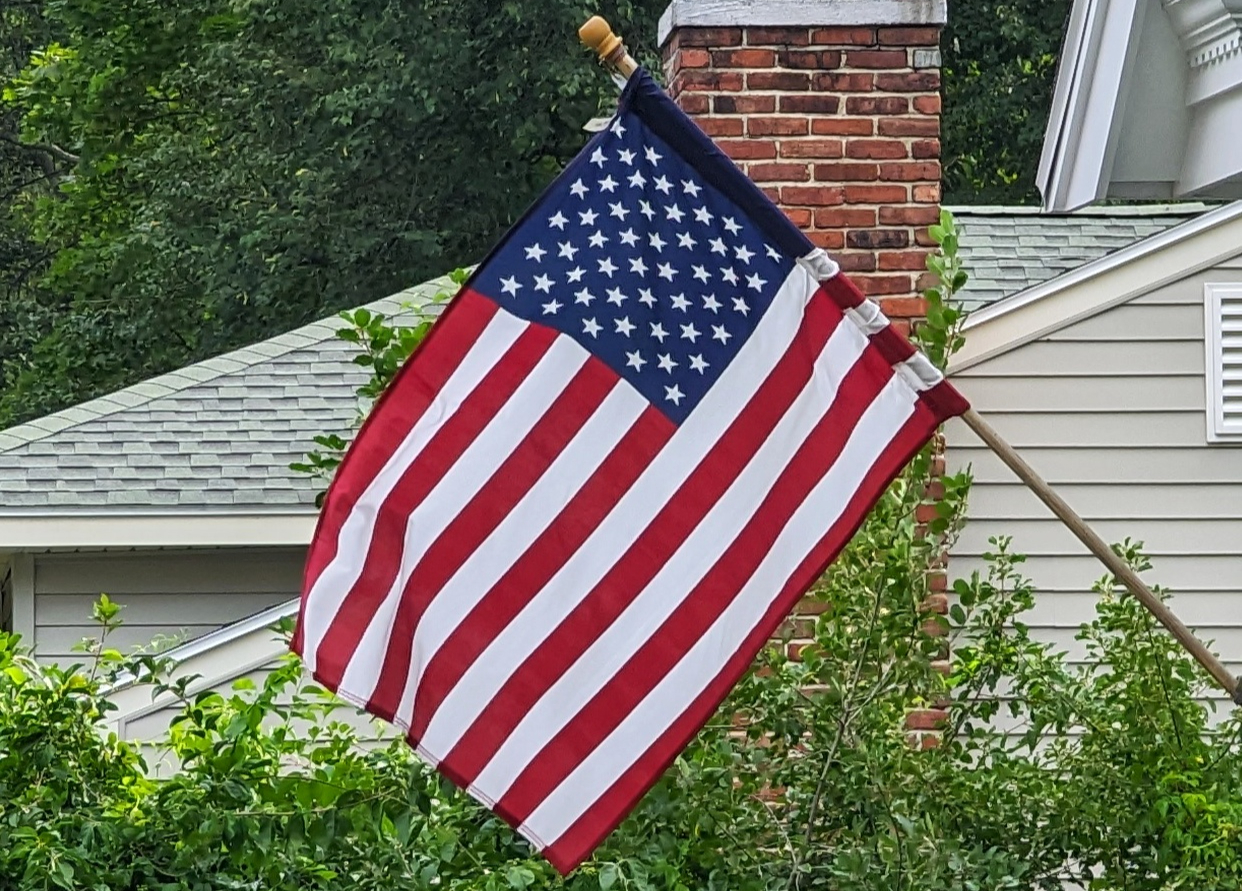
Largely unbeknownst to themselves, influential segments of the New Right and the progressive left share a deep-seated – and delusive – belief. Both suppose that freedom – in the form of the equal individual rights promised by America’s founding principles – on the one hand, and traditional virtues and tight-knit local communities, on the other, are implacably opposed. The more you have of one, prominent figures on the right and on the left surmise, the less you have of the other.
Freedom and the public good do not have to clash
They draw, however, opposite conclusions from their common conviction. Prizing virtue and community, national conservatives and postliberals on the right blame individual freedom for hollowing out the public good and diverting attention from citizens’ character, and they would wield government to uphold their religious convictions and the moral judgments that flow from them. Valuing autonomy, ideologues and activists of the progressive left seek to emancipate individuals from the constraints of venerable duties and inherited ways of life.
One can take too far the observation about the partisans’ strange convergence. After all, the New Right affirms the right of national self-determination and that public policy should reflect that human beings are equally created in God’s image. Meanwhile, the progressive left employs government authority to curtail free speech in the name of inclusiveness. But on the whole, both believe that one must choose: freedom and individual rights or virtue and community.
From the perspective of America’s founding principles, that is a false choice. The founders generally shared John Locke’s view – which reflects Christian teaching and Aristotle’s understanding – that freedom, the virtues, and community are mutually dependent: freedom makes possible the exercise of virtue and the preservation of communities while individuals acquire in communities the virtues that enable them to maintain and improve free institutions.
A model for cooperation
The insight that vital political institutions and fundamental moral goods that are typically pitted against one another achieve their fullest and most fruitful expression in cooperation is central to Philip K. Howard’s succinct new book. In “Everyday Freedom: Designing the Framework for a Flourishing Society,” Howard maintains that throughout contemporary public life, “Americans have lost the authority to do what they think is sensible.” Restoring that authority, he argues, will enhance individual freedom.
His analysis builds on a diversified portfolio of writings and experience assembled over decades. The author of several books dealing with institutions, laws, and practices that have distorted society, eroded freedom, and misshaped morals, Howard is also a lawyer and chair of Common Good, a nonpartisan organization that endeavors to replace bureaucracy with human responsibility. His new book advances the argument by explaining how the restoration of respect for authority enlarges the freedom to assume responsibility, propose and explore options, make decisions, and carry out plans and achieve goals.
Howard focuses on the corrosion of the culture of freedom in post-1960s America. This may sound odd since that decade is famously associated with rebellion against traditional norms and practices. But emancipation in one realm can coexist with the curtailment of freedom in others. Notwithstanding the overthrow of established sexual mores in post-1960s America, American government transformed the legal system, and corporations and schools altered the rules of associational life, argues Howard, in ways that substantially reduced citizens’ freedom.
An assault on freedom
The post-1960s assault on freedom flowed from good intentions, he asserts. To counteract the abuses of authority that produced racial and sexual discrimination, pollution, foreign wars, domestic corruption, and other injustices, “the social and legal institutions for America were remade to try to eliminate unfair choices by people in positions of responsibility.”
But, Howard maintains, the technocratic mindset overreached. To end abuses of authority, it curtailed exercises of discretion. “The new legal structures reflected a deep distrust of human authority in even its more benign forms – a teacher’s authority in the classroom, or a manager’s judgments about who’s doing the job, or a university president’s authority to enforce norms of civil discourse.”
Howard identifies “three new legal mechanisms” that government and business have implemented since the 1960s to protect the American people from abusive authority. Wherever possible, organizations have adopted extensive rules spelling out the “‘one correct way’ to do things.” They have instituted formal procedures – to secure building permits, discipline employees, adjudicate disputes – the results of which they define as the correct outcomes. And they have promiscuously created new rights to provide a cause of action against every sort of personal discontent.
The purpose of comprehensively regulating conduct through elaborate rules, extensive procedures, and a vast array of rights – call it the juridification of public life – reflected the high-minded aspiration “to enhance freedom by reducing any wiggle room for bias, unfairness, or error.” However, “the immediate effect was to remove the freedom to act on our best judgment.”
Unintended – and adverse – consequences
The long-term consequences of the juridification of public life, argues Howard, have been pernicious. The expansion of law and regulation – notwithstanding the aspiration to fairness – suppresses spontaneity, constricts intuition and common sense, fosters conformity, promotes indiscriminate distrust of authority, discourages people from taking ownership of their actions, and erodes appreciation of the common good.
“The cure is not mainly new policies, but new legal operating structures that re-empower Americans in their everyday choices,” Howard contends. “People must have ‘everyday freedom’” – that is, “the individual authority, at every level of society and every level of responsibility, to act as they feel appropriate, constrained only by the boundaries of law and by norms set by the employer or other institution.”
Citing Locke, who stated in The Second Treatise that law’s aim “is not to abolish or restrain, but to preserve and enlarge freedom,” Howard proposes an alternative framework. To preserve and enlarge “everyday freedom,” this new legal architecture would establish “boundaries safeguarding against unreasonable acts.” It would define these boundaries using “broad principles, not detailed rules.” And it would ensure that judges, officials, and administrators possess the authority to enforce the boundaries and broad principles.
Good judgment?
Since judgment on the spot is crucial to most human activities – in the family, within communities, on the job – law that empowers individuals to use their common sense would not only expand freedom but also improve outcomes. But are we up to the challenge? Can we count on the judgment of public officials, of judges, and of fellow citizens to compensate for the reduction of legal regulation that Howard envisages?
“Everyday freedom requires not only a zone of protected autonomy, but also trust that other people will abide by the reasonable values of society,” Howard observes. To be trusted, however, conduct and judgment should be trustworthy. How can we reestablish the trust that is essential to everyday freedom – trust in our fellow citizens, in those who exercise political power and public authority, and in ourselves?
Authority to guide
Although it cuts against the grain of contemporary legal sensibilities, argues Howard, “people with responsibility must be empowered to assert norms of what’s right and reasonable, and they must be free to make judgments about the people they work with.” In other words, one builds social trust by trusting. But in present circumstances, amid contemporary strife and turmoil, will granting greater authority to “judges, officials, school principals, supervisors, and others with institutional authority” to “assert and enforce values of what is right and reasonable” result in increased freedom, productivity, and accomplishment? Or will the move away from elaborate rules, extensive procedures, and the multiplication of rights in favor of the safeguarding of boundaries and broad principles unleash greater capriciousness, inefficiency, and highhandedness?
Howard touts Pennsylvania Gov. Josh Shapiro’s handling of the collapse of an elevated section of I-95 in June 2023. In 12 days, the state completed repairs that were expected to take months. The explanation, argues Howard, is that Shapiro “declared an emergency and suspended all regulations that ‘would in any way prevent, hinder, or delay necessary action.’” This freedom to exercise authority allowed supervisors and workers to use their discretion, find creative solutions, and work unimpeded by bureaucratic meddling and endless demands for permits and licenses.
Reconciling freedom with virtue
But one shining example does not legitimate extensive legal reform. To deserve, in the name of the protection of everyday freedom, the greater authority and discretion that Howard would entrust to them, public officials and ordinary citizens must acquire a range of virtues: the imagination to put themselves in other people’s shoes; the diligence to do their homework and devise feasible undertakings, measures, and reforms; the courage to stand by correct but unpopular decisions; and the grace to admit when they are wrong and correct course.
The American political tradition teaches that the cultivation of these virtues, which are essential to the responsible exercise of everyday freedom, depends on strong families, vibrant communities, and schools dedicated to education rather than indoctrination.
Contrary, then, to influential elements within both the New Right and the progressive left, reconciling freedom, on the one hand, and virtue and community, on the other, does not call for squaring a circle but rather embracing a package deal.
This article was originally published by RealClearPolitics and made available via RealClearWire.
Peter Berkowitz is the Tad and Dianne Taube senior fellow at the Hoover Institution, Stanford University. From 2019 to 2021, he served as director of the Policy Planning Staff at the U.S. State Department.
-

 Constitution4 days ago
Constitution4 days agoPrecinct Strategy scores again
-

 Education5 days ago
Education5 days agoTitle IX revision sparks State revolts
-
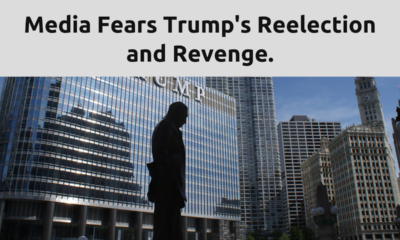
 Civilization3 days ago
Civilization3 days agoLegacy media already assume Trump wins
-
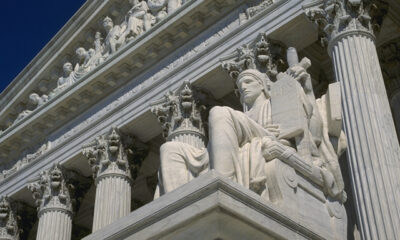
 Civilization3 days ago
Civilization3 days agoSCOTUS Is Last Bulwark Against Critical Legal Studies
-
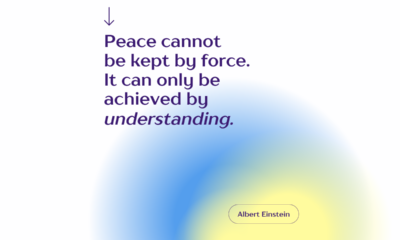
 Civilization24 hours ago
Civilization24 hours agoAntisemitism – and misguided legislation
-

 Civilization3 days ago
Civilization3 days agoEnergy Pipeline Companies Should Follow the Rules of the Road
-

 News4 days ago
News4 days agoTime to Fly – Really Fast
-
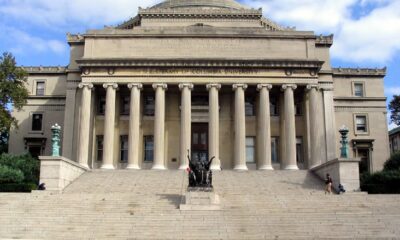
 Education4 days ago
Education4 days agoThe Road Back to Normalcy Starts Where the Problem Began: College Campuses












